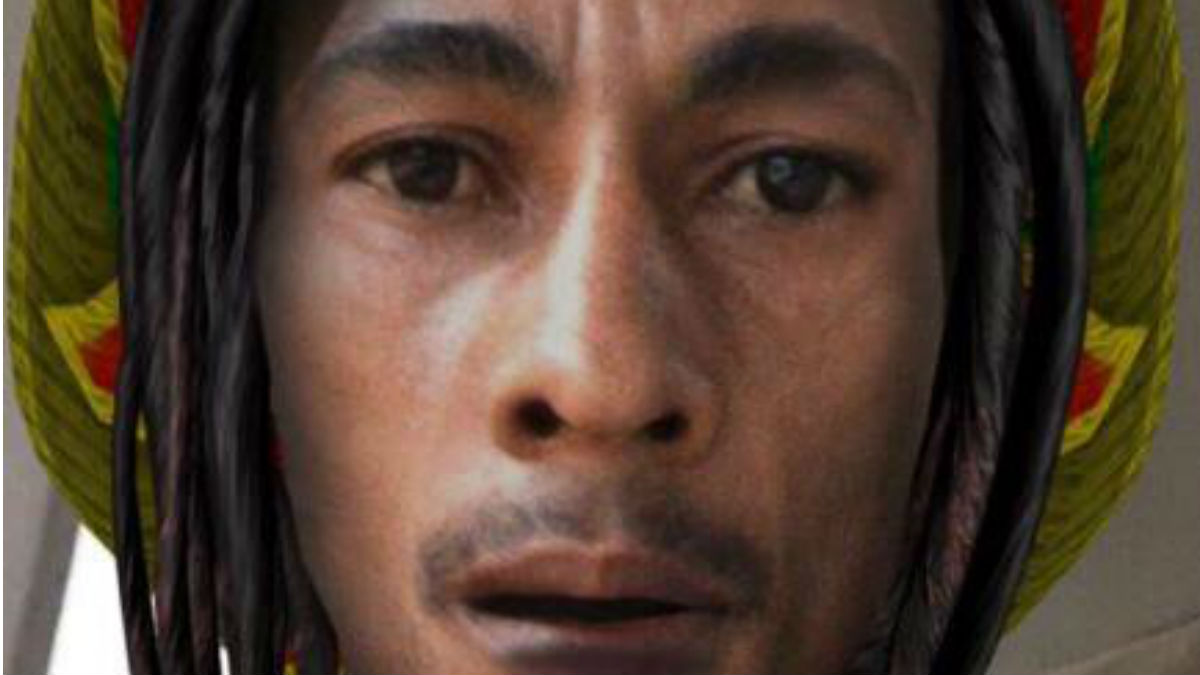Snapchat under fire for 'blackface' Bob Marley filter
Mobile app insists it was trying to honour the musician's legacy – but users aren't impressed

A free daily email with the biggest news stories of the day – and the best features from TheWeek.com
You are now subscribed
Your newsletter sign-up was successful
Snapchat has been widely rebuked for a filter inspired by Bob Marley that digitally darkens a user's skin tone.
The popular image-sharing app launched the lens yesterday to coincide with 420, an unofficial day of celebrating cannabis culture.
The filter superimposed the reggae musician's trademark dreadlocks and Rastafarian-style hat over the user's image, while also changing their features and darkening their skin.
The Week
Escape your echo chamber. Get the facts behind the news, plus analysis from multiple perspectives.

Sign up for The Week's Free Newsletters
From our morning news briefing to a weekly Good News Newsletter, get the best of The Week delivered directly to your inbox.
From our morning news briefing to a weekly Good News Newsletter, get the best of The Week delivered directly to your inbox.
It faced immediate criticism online, with many users describing it as a form of "blackface". Others were less concerned with the skin colour in the filter, and more annoyed that the music legend and renowned black rights activist was being solely associated with smoking marijuana.
Commentators were equally unimpressed, with Forbes describing it as "one of the most jaded and ill-conceived marketing stunts in social media history".
New York Magazine argued that while it is great to celebrate Marley, a legendary musician and icon for peace and justice, "maybe there were better days to do it on?"
Snapchat insists that it created the lens with the Bob Marley Estate as a way of honouring the musician's legacy. "[It] gives people a new way to share their appreciation for Bob Marley and his music," the company said, adding that "we respect his life and achievements".
A free daily email with the biggest news stories of the day – and the best features from TheWeek.com
But permission "doesn't make the feature any less racist", says The Guardian. "Marley was the voice of poor people and black liberation in a space very few artists ever have access to, a distinction that deserves due respect."
We can laugh at the "seemingly bottomless culture of internet outrage", says Mary Elizabeth Williams at Salon, but "it's actually not that hard to take a pause and think, 'Is what we're doing here insensitive and idiotic?'… To the folks at Snapchat who thought this little gimmick was cute, I have to ask – what were you smoking?"
-
 The week’s best photos
The week’s best photosIn Pictures An explosive meal, a carnival of joy, and more
-
 The ‘ravenous’ demand for Cornish minerals
The ‘ravenous’ demand for Cornish mineralsUnder the Radar Growing need for critical minerals to power tech has intensified ‘appetite’ for lithium, which could be a ‘huge boon’ for local economy
-
 Why are election experts taking Trump’s midterm threats seriously?
Why are election experts taking Trump’s midterm threats seriously?IN THE SPOTLIGHT As the president muses about polling place deployments and a centralized electoral system aimed at one-party control, lawmakers are taking this administration at its word
-
 Epstein files topple law CEO, roil UK government
Epstein files topple law CEO, roil UK governmentSpeed Read Peter Mandelson, Britain’s former ambassador to the US, is caught up in the scandal
-
 Iran and US prepare to meet after skirmishes
Iran and US prepare to meet after skirmishesSpeed Read The incident comes amid heightened tensions in the Middle East
-
 Israel retrieves final hostage’s body from Gaza
Israel retrieves final hostage’s body from GazaSpeed Read The 24-year-old police officer was killed during the initial Hamas attack
-
 China’s Xi targets top general in growing purge
China’s Xi targets top general in growing purgeSpeed Read Zhang Youxia is being investigated over ‘grave violations’ of the law
-
 Panama and Canada are negotiating over a crucial copper mine
Panama and Canada are negotiating over a crucial copper mineIn the Spotlight Panama is set to make a final decision on the mine this summer
-
 Why Greenland’s natural resources are nearly impossible to mine
Why Greenland’s natural resources are nearly impossible to mineThe Explainer The country’s natural landscape makes the task extremely difficult
-
 Iran cuts internet as protests escalate
Iran cuts internet as protests escalateSpeed Reada Government buildings across the country have been set on fire
-
 US nabs ‘shadow’ tanker claimed by Russia
US nabs ‘shadow’ tanker claimed by RussiaSpeed Read The ship was one of two vessels seized by the US military